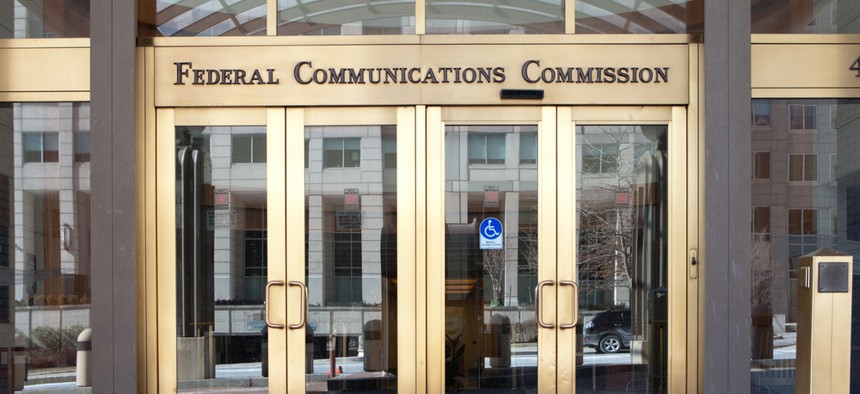
Mark Van Scyoc / Shutterstock.com
For First Time in 7 Years, FCC Fines TV Station for Nudity
A Virginia TV station admits to airing a porn clip during the news, but it says the FCC is violating its free-speech rights.
For the first time during the Obama administration, the Federal Communications Commission on Monday said it plans to fine a television station for airing sexually explicit material.
A Roanoke, Virginia, station accidentally aired a brief pornographic video clip during its evening newscast on July 12, 2012, in a segment on an ex-porn star who was volunteering for a local rescue squad. The station included a 3-second clip from the woman's website of her posing suggestively, but the station says it didn't notice that the site had an explicit video clip in a box on the side of the webpage.
The proposed $325,000 fine of WDBJ Television is the maximum amount possible under the law.
The FCC has long barred radio and broadcast TV stations from airing indecent material such as curse words and nudity. But for much of the Obama administration, the agency declined to enforce the rules, saying its authority was in legal limbo because of constitutional challenges from broadcasters.
In 2012, the Supreme Court upheld the FCC's authority to police the airwaves for indecent content. The FCC settled cases against two radio stations in 2014, but Monday's ruling is the first action against a TV station since 2008.
"Our action here sends a clear signal that there are severe consequences for TV stations that air sexually explicit images when children are likely to be watching," Travis LeBlanc, chief of the FCC's Enforcement Bureau, said in a statement.
The station plans to fight the FCC's decision.
"We are surprised and disappointed that the FCC has decided to propose to fine WDBJ7 for a fleeting image on the very edge of the of some television screens during a news broadcast," Jeffrey Marks, the station's president, said in a statement. "The story had gone through a review before it aired. Inclusion of the image was purely unintentional. The picture in question was small and outside the viewing area of the video-editing screen."
Marks claimed "the enormous fine" would be an "extraordinary burden on protected speech" and pointed to the station's long history of complying with FCC regulations. In filings with the FCC, the station warned that a fine would violate procedural rules and its constitutional free-speech rights.
Conservative values groups celebrated the action, saying they hope it will mean a new era of tougher enforcement.
Melissa Henson, the head of communications and public education for the Parents Television Council, said the major TV networks had been "taking advantage" of lax enforcement and basically daring the FCC to take action.
"The fact that the FCC issued the fine this morning did, I think, send the signal that they are still looking at enforcing the broadcast decency laws," she said. "Hopefully, the broadcast networks will think twice before continuing this agenda of pushing the content envelope."
She complained that Julius Genachowski, who was FCC chairman from 2009 to 2013, made it clear he had no interest in cracking down on indecent content, even after the Supreme Court upheld his authority to do so. She has higher hopes, she said, for Chairman Tom Wheeler, who took office in late 2013.
Henson acknowledged that with cable TV and online video, consumers have more choices than ever in what to watch, much of it beyond the reach of the FCC's broadcast decency rules. But, she argued, it is important to take a hard line against the radio and TV networks because they are using a public resource—the nation's airwaves.
(Image via )







